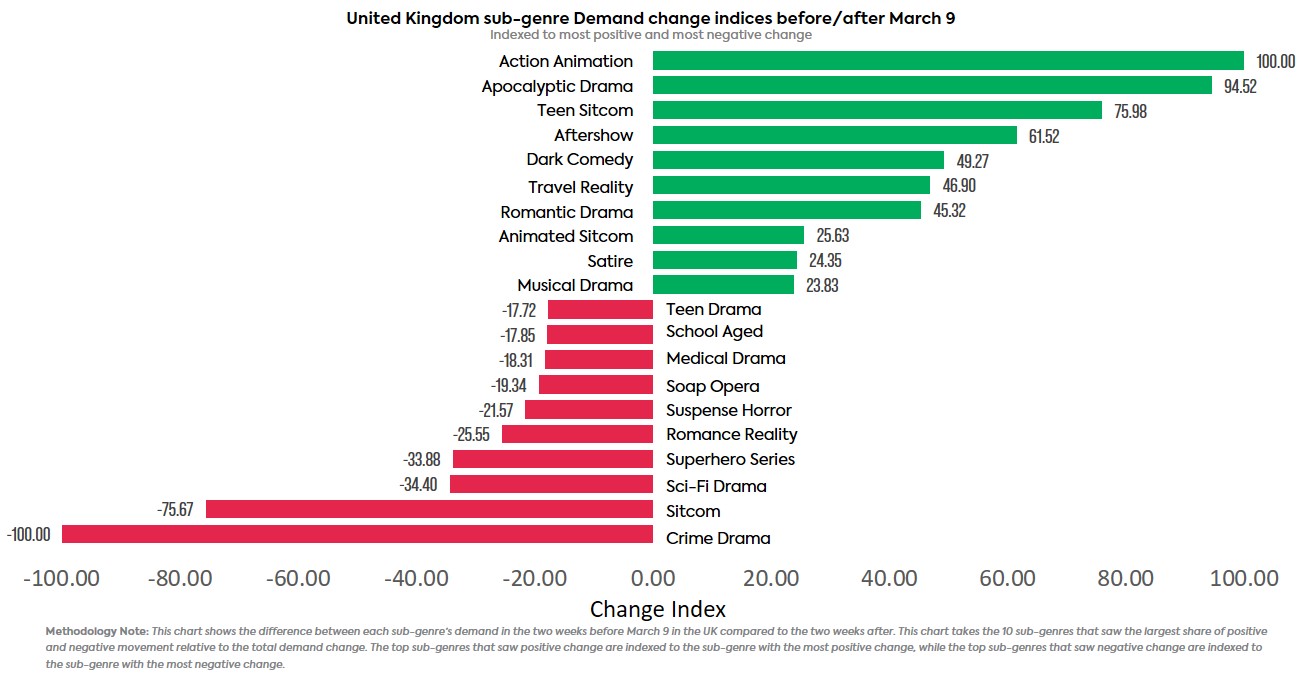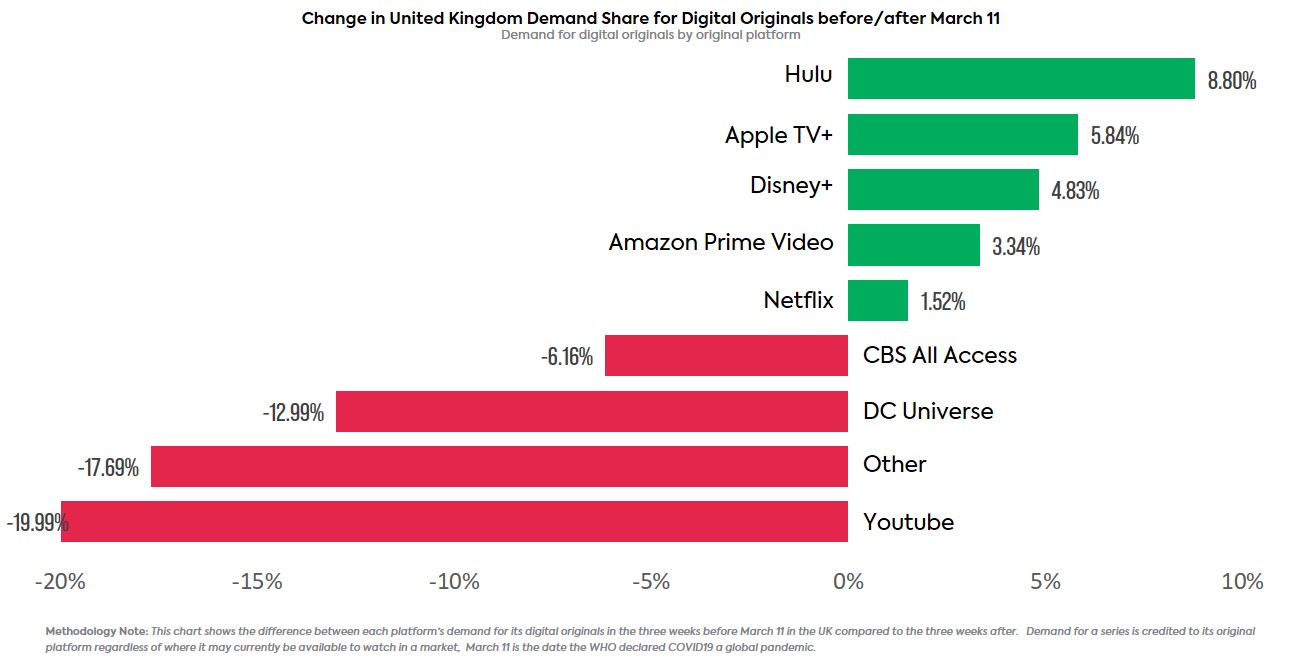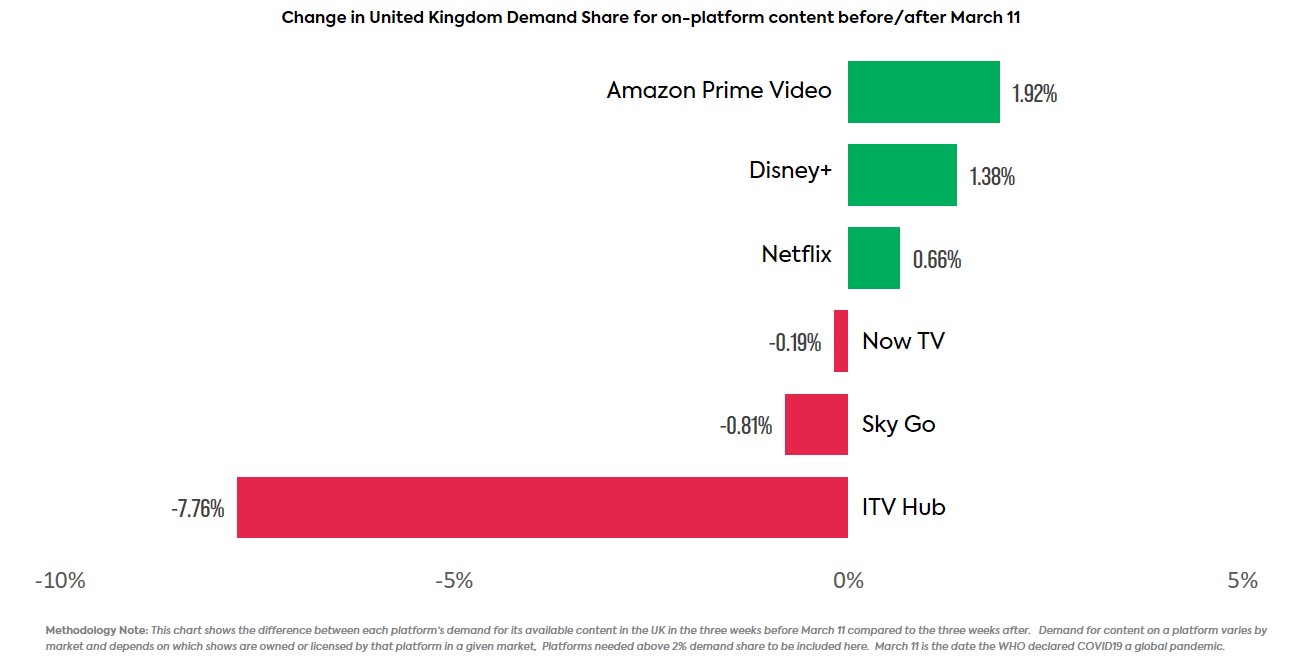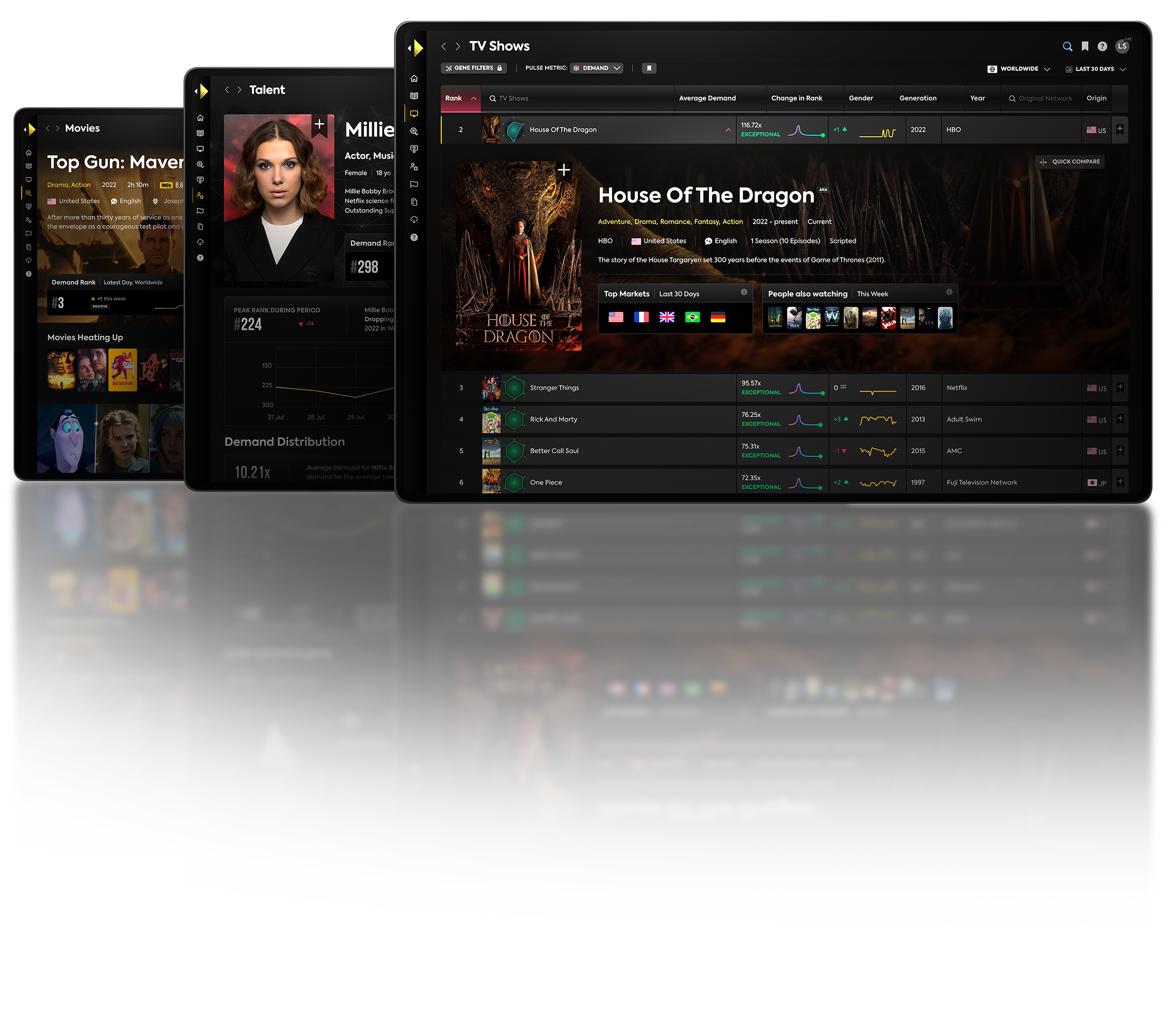The Covid-19 pandemic has brought enormous disruption to the global economy. The impacts to the entertainment industry can be seen on both the supply and demand side. In many cases content production has been disrupted or halted altogether; while on the other side of the equation audiences are now isolated indoors and seeking out new content to fill their time. In this report we hope to provide some insight into how this unprecedented global crisis is affecting demand for content in the United States.
On March 15 the CDC issued a recommendation against large gatherings of people for eight weeks. The following day the president issued new guidelines to avoid gatherings of 10 or more people and limit discretionary travel. In the chart below we show the sub-genres that saw the greatest change (both positive and negative) following the announcement of these measures:

It is notable the among the sub-genres that saw the largest declines are Talk Shows and Sketch Comedy. These are genres that have seen an immediate impact to production since the crisis started. Saturday Night Live has cancelled its upcoming episodes to comply with the restrictions on gatherings of people. Talk Shows such as The Ellen Degeneres Show have suspended production entirely while others such as the Late Show with Stephen Colbert have embraced filming from home. All these series have seen some of the largest drops in demand since March 16th in the US.
Sub-genres that have seen an uptick in demand include escapist dramas (Fantasy, Sci-fi, and Historical dramas) and kids content (School Age, Teen Sitcom, and Cartoons). The jump in demand for kids content is likely driven by students at home following school closures. Shows driving the growth in their respective sub-genres include series with well timed new season releases (Westworld, Elite, and The Walking Dead) and old favorites that audiences seem to be returning to (The Office, Lost, and Game of Thrones).

We can also evaluate which platforms have seen the largest changes in demand for their on-platform content. Apple TV+ has seen a large increase in its demand share of the platforms above since March 11. Being a new platform with a catalog of new content has likely given a boost to its catalog demand recently as viewers hunt for new content to watch. Its launch in November of last year disappointed some but perhaps now audiences are giving the new platform a chance while they have more time for content. Netflix notched an impressive 2.8% gain in the three weeks since March 11. It has the largest demand share of all these platforms, so a 2.8% increase is impressive from its already dominant position. Netflix's model of constantly producing new original content (more than viewers could ever consume) is likely winning it fans in the current environment. DC Universe saw the largest decline in demand share in this time. A potential consolation is that they had not yet released the latest season of Harley Quinn in this data's time period. Expect them to rebound from this number in the coming weeks.
CATALOG SHARE

For more information, check out the most up-to-date United Kingdom television industry overview.


